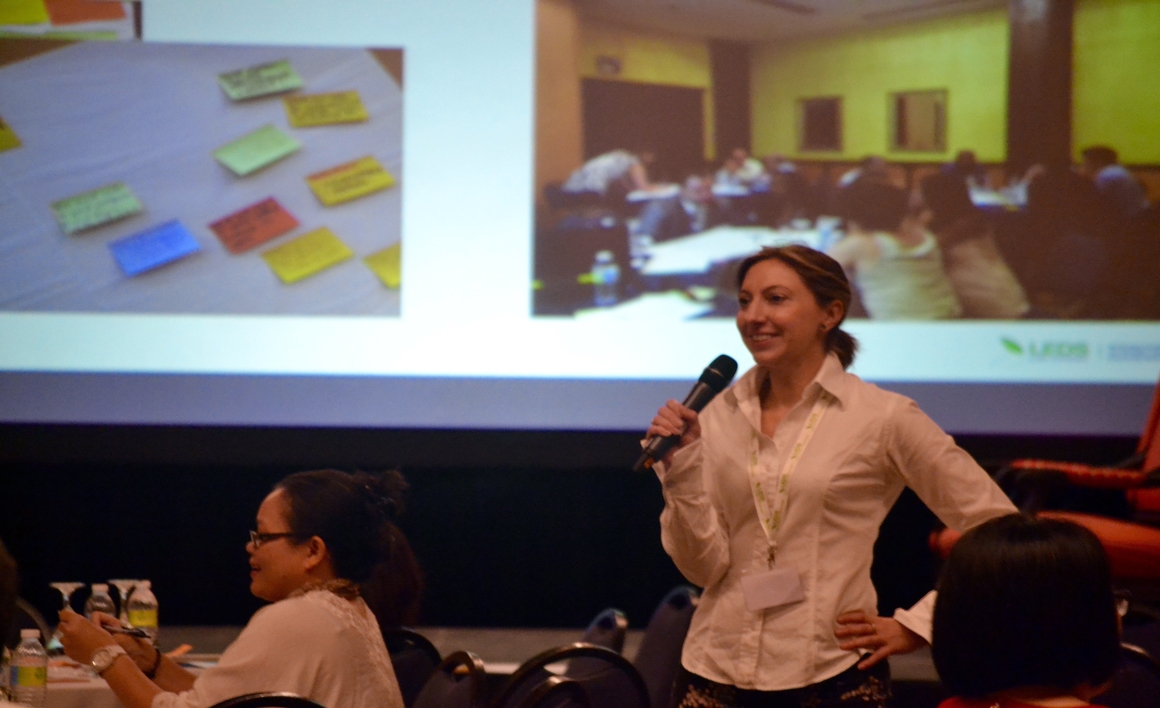Leadership…
“…you twist and turn, like a… twisty, turny thing!” (Lord Melchett, Blackadder the Second)
How many books, essays, vlogs are dedicated to this slippery subject? Leadership. How can we quantify this ethereal quality? Like alchemists we try to pull it apart, seek to know its nature, so we can distil it, bottle it and mass-manufacture it!
So, what does an actor know about Leadership? What can I contribute to the mix?
Quite beyond Richard Olivier/Mythodrama’s outstanding work examining Shakespeare’s leaders and how to bring their qualities to bear in the real world, there is one thing I learned a LONG time ago…
It was a throwaway comment from my “mentor” at the first school placement during my teacher- training, following my very first, and particularly disastrous, lesson practice. It was not only the most useful piece of advice he ever gave me, it was the only piece of advice (or feedback) he ever bothered to give. “Use your voice. Draw them to you.” It struck me as the most obvious and yet most overlooked thing. It is something I have worked on studiously and continue to do so. It is one of the first things people notice in a great leader.
Voice.
I’m not talking about dialogue, or narrative but actual vocal sound.
Last year, we lost, to my great dismay, the simply wonderful Alan Rickman. A man blessed with a voice so distinctive that even as you read this you’ll be calling it to mind (who can forget his stellar portrayal of the sardonic Professor Snape? “I can teach you how to bottle fame, brew glory, even stopper death!”) And I’m sure we’ve all laughed at the memes that circulate regularly, a photograph of Morgan Freeman declaring that you’re reading the caption in his voice. (Admit it, you’re doing it now.)
Leaders must be heard. Their message must be heard. And voice, like leadership, is often presumed to be a gift that you either have or you don’t. Patently not true. Now, certainly, some people are very fortunate to be born with rich, resonant voices but (like going to the gym) the rest of us don’t have to settle for what we find ourselves genetically lumped with!
“Speak the speech, I pray you… trippingly on the tongue…” says Hamlet. And we all know what he means! We’ve all sat through torturous meetings and presentations and (*sighs*) keynote speeches suffering the monotonous, droning rumble or nasal piping of a presenter who hasn’t paid any attention to their instrument. But, conversely, we have all been present (even if it was “just” at school) when an inspiring voice has lifted us, buoyed us up, encouraged us to share their vision, or dream our own.
When we think of iconic figures – people like Winston Churchill, John F. Kennedy, Audrey Hepburn, Michelle Obama – these are people with distinctive voices that comfort us, inspire us, hypnotize us. Voices flexible enough to take us through the full range of human experience. Great leaders know how to “use [their] voice” and they don’t leave it to chance. They take the time to notice what works and what doesn’t, they practice, they shape themselves but they also actively seek out good advice, seek out mentors and coaches and experts to help them to be the best they can be. Quite beyond speaking, these habits are the traits of great leadership.
“Use your voice. Draw them to you.”
Speak.



